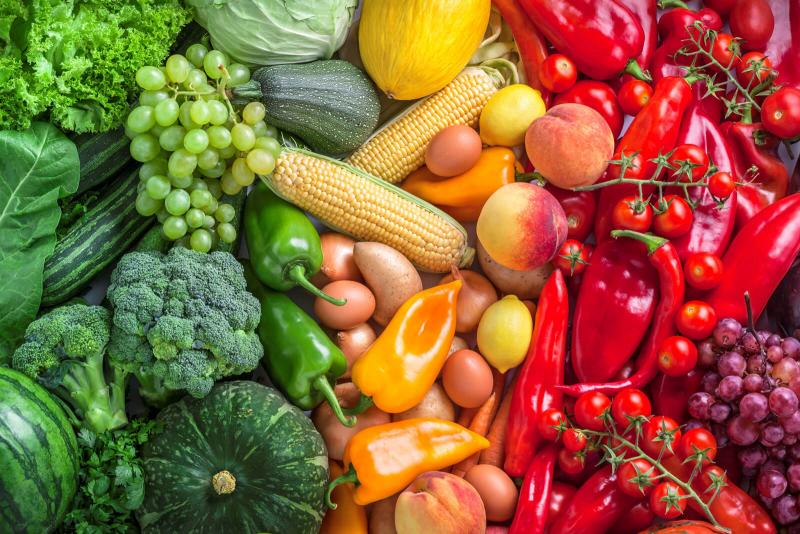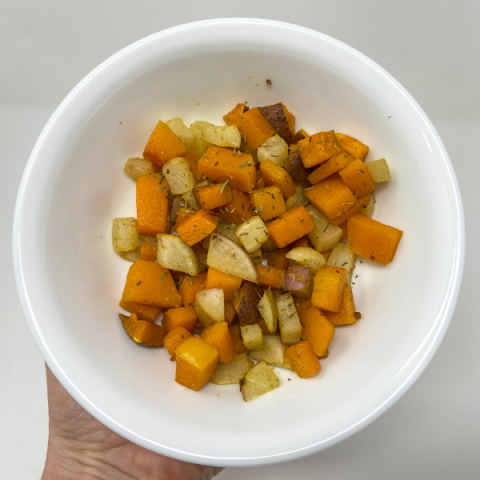
Colorectal Cancer is the fourth leading cause of cancer-related deaths in the United States. It is a cancer that occurs in the colon or rectum and is also known as colon cancer. There are several ways to help reduce your risk and prevent colorectal cancer. Many of these strategies focus on healthy lifestyle practices such as eating healthy, limiting alcohol, not smoking, and being physically active.
How to Reduce Your Risk
- Eat healthy. One way to lower your risk is to eat a diet rich in fruits and vegetables and whole grains from breads, cereals, and pastas. The 2020-2025 Dietary Guidelines for Americans recommends limiting foods and beverages higher in added sugars, saturated fat, and sodium, focusing on meeting food group needs with nutrient-dense foods, and staying within calorie limits.
- Focus on folate. Folate is a B vitamin that helps produce and maintain new cells. It may also help prevent changes to DNA that may lead to cancer. Eat foods with folate more often, such as leafy green vegetables like spinach and turnip greens, fruits such as citrus fruits and 100% juices, and dried beans and peas.
- Toss tobacco. Most people think of tobacco causing lung cancer, but it has been shown to cause cancer in the colon and rectum. If you use tobacco, quit as soon as possible. If you do not use tobacco, do not start. Visit www.smokefree.gov for resources on quitting.
- Be active. The American Cancer Society recommends that adults get 150-300 minutes of moderate intensity or 75-150 minutes of vigorous intensity each week (or a combination of these). Being active at least 30 minutes most days of the week will help reach that recommendation. You can even break it up into 10-minute segments throughout the day. Moderate exercise such as walking, gardening, or climbing steps may help reduce your risk. Examples of vigorous activity include jogging or running, fast bicycling, circuit weight training, aerobic dance, martial arts, jumping rope, or swimming.
Recognize Colorectal Cancer Symptoms
- A change in bowel habits
- Blood in or on the stool (bowel movement)
- Diarrhea, constipation, or feeling that the bowel does not empty all the way
- Stools that are narrower than usual
- General, unexplained stomach discomfort
- Frequent gas, pains, or indigestion
- Losing weight and you don't know why
- Chronic fatigue
Know Your Risk Factors
Several factors can increase your risk for colorectal cancer. Being older increases your risk, but other risk factors you cannot change include having:
- A personal or family history of colorectal polyps or colorectal cancer
- Inflammatory bowel disease such as Crohn's disease or ulcerative colitis
- A genetic syndrome such as familial adenomatous or Lynch syndrome
You can change several lifestyle factors that may contribute to an increased risk of colorectal cancer. These risk factors include:
- Being overweight or obese
- Eating a low-fiber, high fat diet
- An inactive lifestyle
- Smoking
- Heavy alcohol use
Get Screened
Early detection is key and the best way to fight back against colorectal cancer is to get screened. If you are 45 or older, it is recommended to get screened for colorectal cancer at regular intervals. If you have an increased risk of getting colorectal cancer, you may need to be tested earlier than 45. Talk to your doctor about when to begin screening, which screening test is right for you, and how often to get tested.
Sources:
Colorectal Cancer, Centers for Disease Control and Prevention
Do I Have Colorectal Cancer? Signs, Symptoms and Work-Up, American Cancer Society
Dietary Guidelines for Americans, 2020-2025. 9th Edition. December 2020. United States Department of Agriculture and United States Department of Health and Human Services.
Tobacco and Cancer, Centers for Disease Control and Prevention
Folate: Fact Sheet for Health Professionals, National Institutes of Health (NIH)
Can Colorectal Cancer Be Prevented?, American Cancer Society
Feedback Form
Feedback Form
If you do not see the article, please scroll up the page.








